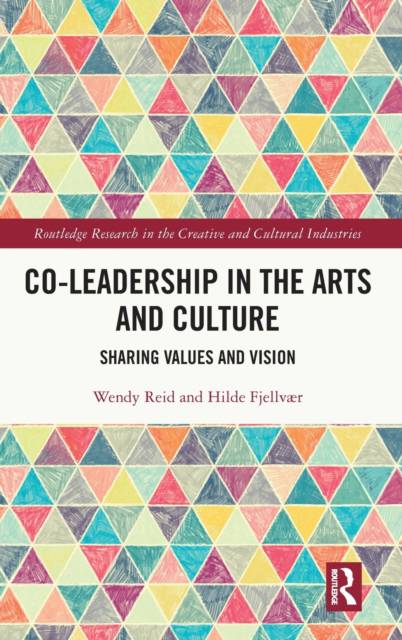
- Afhalen na 1 uur in een winkel met voorraad
- Gratis thuislevering in België vanaf € 30
- Ruim aanbod met 7 miljoen producten
- Afhalen na 1 uur in een winkel met voorraad
- Gratis thuislevering in België vanaf € 30
- Ruim aanbod met 7 miljoen producten
Omschrijving
This book is about co-leadership: A leadership practice and structure often found in arts organizations that consist of two or three executives who bridge the art and business divide at the top.
Many practitioners recognize this phenomenon but the research on this topic is limited and dispersed. This book assembles a coherent overview and presents new insights of the field. While co-leadership is well institutionalized in the West, it is also criticized for management's constraint of artistic autonomy and for its pluralism that dilutes leadership clarity. However, co-leadership also personifies the strategic objectives of art, audiences, organization, and community, by addressing plural logics - navigating the demands of artistic vision and organizational stability. It is an integrating solution. The authors investigate its specifics in the arts, including global practice and its interdisciplinary nature. The theoretical frame of plural leadership supports their empirical explorations of the dynamics within the co-leadership relationship and with organizational stakeholders. Data includes the voices of co-leaders, artists, staff, and board members from arts organizations in Canada and Norway. Their abductive reflection generates a stimulating research experience.
By viewing co-leadership in action, not as a study of static theories, the book will appeal not only to students and researchers but also resonate with practitioners in arts and cultural management and assist them to work with co-leadership and to manage its tensions.
Specificaties
Betrokkenen
- Auteur(s):
- Uitgeverij:
Inhoud
- Aantal bladzijden:
- 290
- Taal:
- Engels
- Reeks:
Eigenschappen
- Productcode (EAN):
- 9781138587021
- Verschijningsdatum:
- 26/12/2022
- Uitvoering:
- Hardcover
- Formaat:
- Genaaid
- Afmetingen:
- 156 mm x 234 mm
- Gewicht:
- 580 g

Alleen bij Standaard Boekhandel
Beoordelingen
We publiceren alleen reviews die voldoen aan de voorwaarden voor reviews. Bekijk onze voorwaarden voor reviews.











